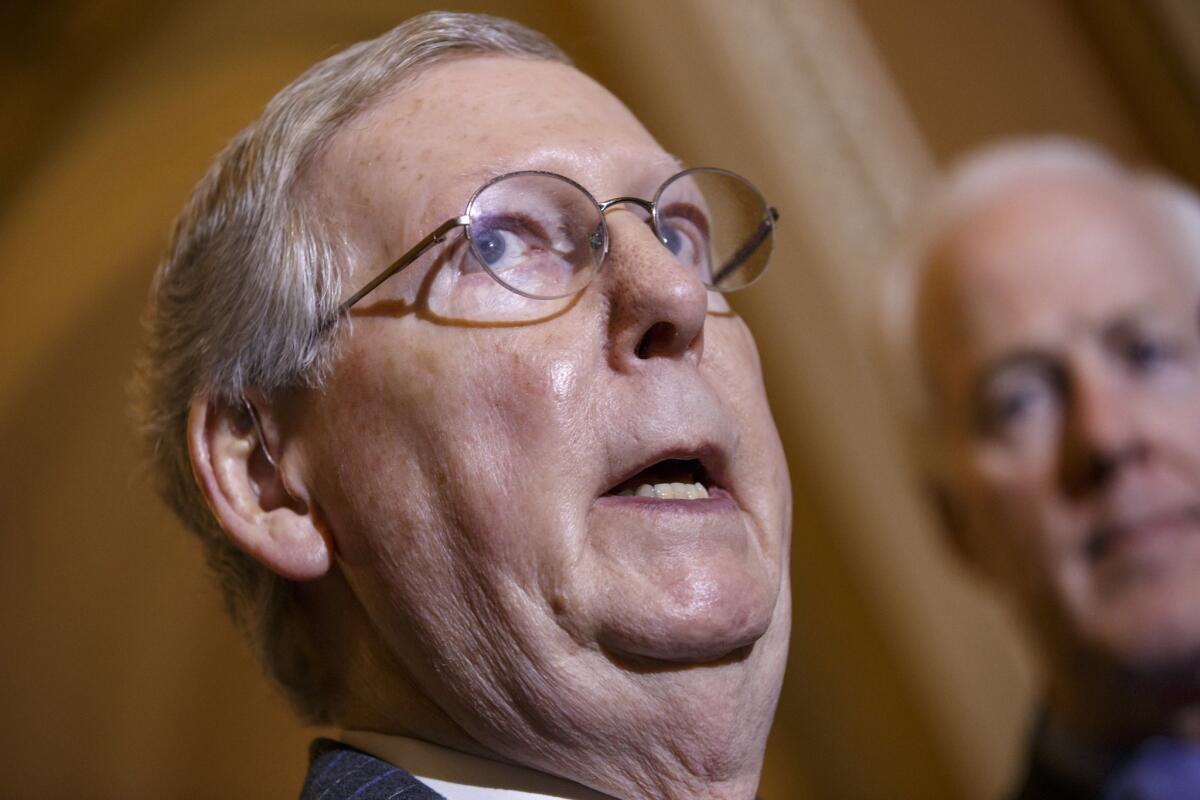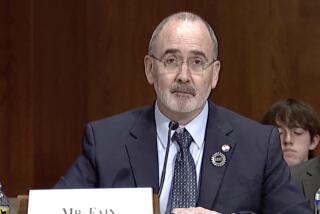Opinion: With all the nation’s problems, GOP leaders pick this labor fight?

Late last year, the National Labor Relations Board took some modest steps to try to streamline the process of holding union-recognition elections at work sites. I wrote at the time that key among the new rules are measures to speed up the election timetable and bar legal challenges by management before workers get a chance to vote, a maneuver that management has used to push long delays in the process -- delays that work to management’s advantage.
Anti-union folks in Congress decried the new regulations then, and now are pushing to nullify them through the little-used Congressional Review Act, under which Congress can through a joint resolution nullify new regulations before they go into effect. It’s a long-shot process: Both chambers have to approve the measure and then it goes for a presidential signature; a presidential veto takes the usual two-thirds vote in Congress to override.
According to the Government Accountability Office, 43 such resolutions have been introduced since 1996 but only two of those have passed either the Senate or the House. Only one made it through both chambers and was signed by the president. That measure came in the early days of the George W. Bush administration and nullified a Clinton administration Occupational Safety and Health Administration regulation governing ergonomics in poultry plants and other industries where workers were susceptible to musculoskeletal disorders. As a Harvard Law Review article pointed out, the Congressional Review Act is likely most effective when a new administration seeks to undo last-minute regulatory measures by the previous president.
Still, three Republican senators -- Labor Committee Chairman Lamar Alexander of Tennessee, Majority Leader Mitch McConnell of Kentucky and Mike Enzi of Wyoming -- and a couple of House Republicans have introduced the current measure. Alexander was an outspoken opponent of the NLRB rule -- and of the NLRB itself, which he wants to neuter -- so it’s not much of a surprise he’d beat on this particular drum. And it’s not like congressional Republicans care about wasting time on symbolic votes or pushing legislation they know will fail.
Most telling, though, are some of the comments accompanying the move.
“In an era of stagnant wages, does a worker want to see her paycheck shrink so a political boss can attend more campaign fundraisers?” McConnell asked.
Ignoring McConnell’s red-herring rhetoric (if labor supported him, he’d be happy to attend those fundraisers himself), there’s a strong body of studies that display the link between decreased union membership, the collapse of the middle class and the massive income gap. If McConnell et al were really interested in shoring up workers’ wages, they’d be focusing their attention on legislation to limit off-shoring of jobs, increase infrastructure investment and overhaul the tax code to eliminate loopholes and policies that make it easy for corporations to park profits overseas and beyond the reach of the tax collectors.
That McConnell et al are instead focusing on a long-shot effort to negate a small step to enhance the ability of workers to bargain collectively tells you where their interests really lie. As if you didn’t already know.
Follow Scott Martelle on Twitter @smartelle
More to Read
A cure for the common opinion
Get thought-provoking perspectives with our weekly newsletter.
You may occasionally receive promotional content from the Los Angeles Times.







